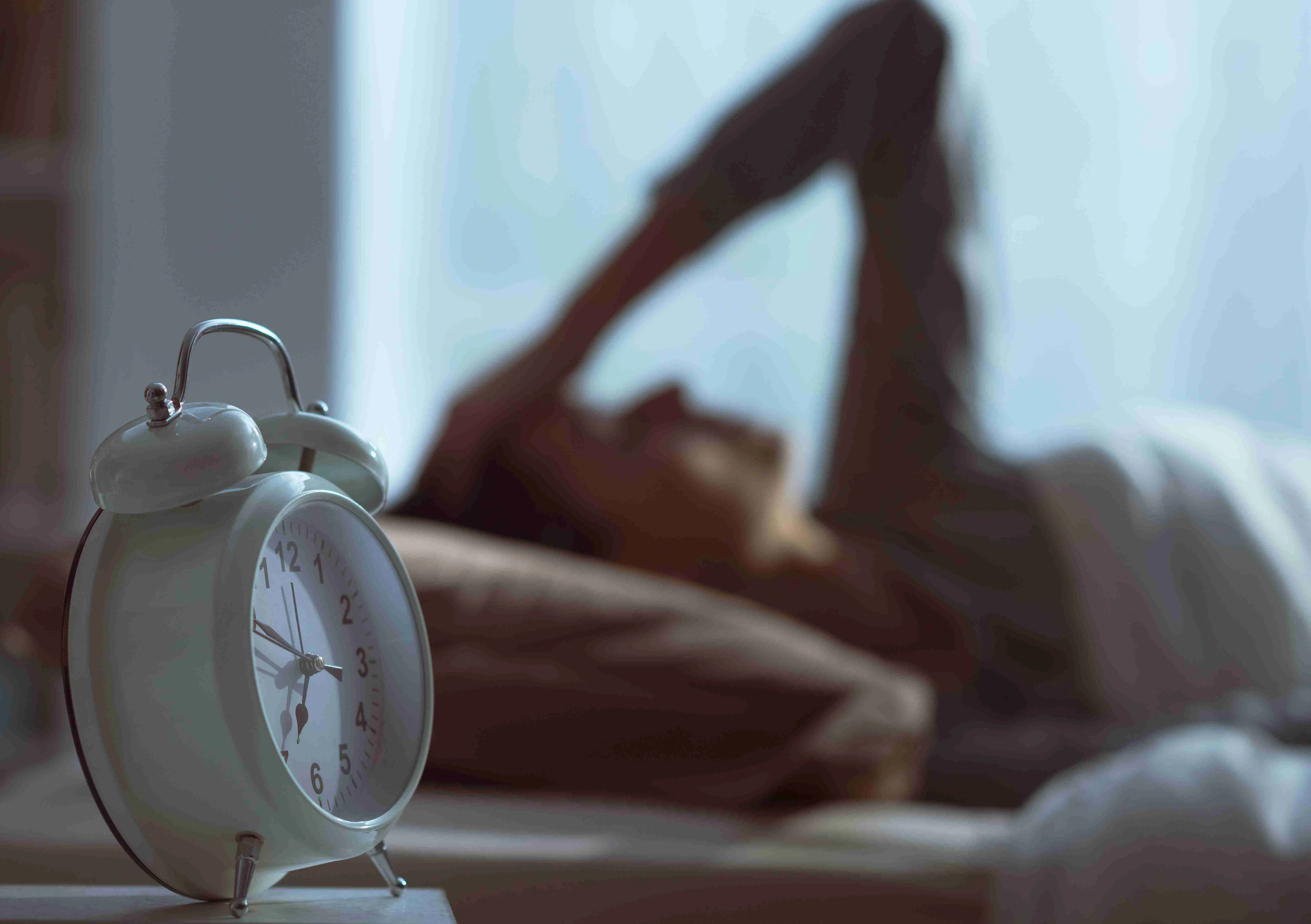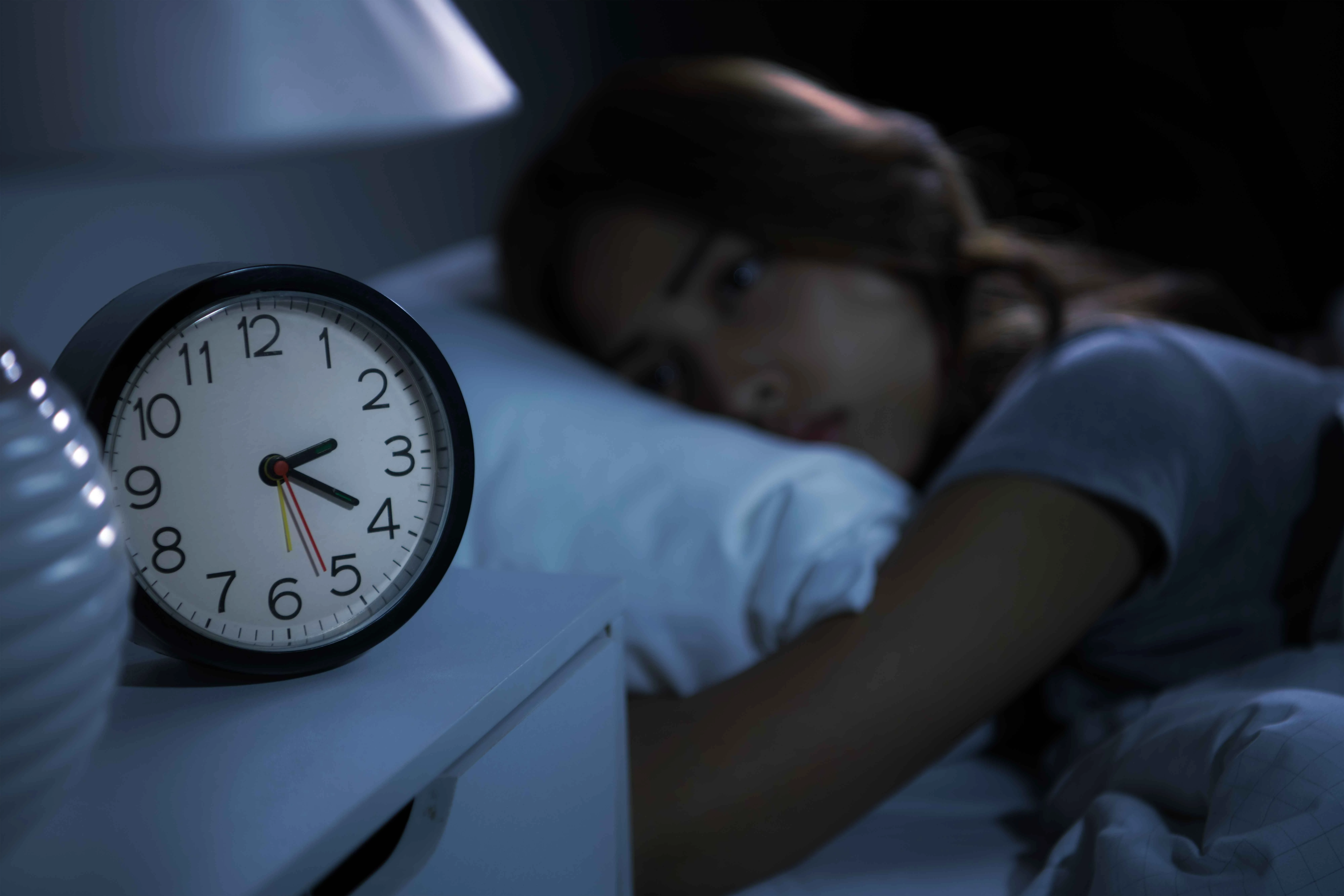Many people in the modern world suffer from sleep disorders, and in this fast-paced way of living, circadian rhythm disorders are becoming more relevant than ever.
Circadian rhythm disorders have multiple symptoms, causes, and types that can vary from person to person, and it's vital to be more aware of and understand them to combat them properly.
What are circadian rhythm sleep disorders?

Circadian rhythm sleep disorders are a group of conditions that affect a person's normal sleep-wake cycle. The circadian rhythm is the internal biological clock that regulates various physiological processes, including sleep. Disruptions to this rhythm can cause difficulties in falling asleep, staying asleep, or waking up at the desired times.
The Role of the Body’s Internal Clock
The body's internal clock, also known as the circadian rhythm, plays a crucial role in regulating various physiological processes. This internal clock maintains the sleep-wake cycle, controls hormone release, and influences metabolic functions.
The suprachiasmatic nucleus (SCN) in the brain primarily governs the circadian rhythm, receiving input from light-sensitive cells in the eyes. Our biological functions align with day and night cycles, as this input synchronizes the body's internal clock with the external environment.
Types of Circadian Rhythm Disorders
There are several types of circadian rhythm disorders, and each of these disorders is characterized by specific symptoms and can significantly impact an individual's daily functioning.
Jet Lag Disorder
Jet lag is a common circadian rhythm disorder that occurs when a person travels across different time zones. This rapid change in time zones disrupts the body's internal clock, leading to symptoms such as fatigue, insomnia, difficulty concentrating, and gastrointestinal problems.
Shift Work Sleep Disorder
Shift work disorder is another type of circadian rhythm disorder that affects individuals who work non-traditional hours, such as night shifts or rotating shifts. These irregular work schedules can disrupt the body's natural sleep-wake cycle, leading to symptoms such as excessive sleepiness during work hours, difficulty falling asleep or staying asleep during daytime hours, and decreased alertness and performance.
Delayed Sleep-Wake Phase Disorder
Delayed sleep-wake phase disorder (DSWPD) is a circadian rhythm disorder characterized by a persistent inability to fall asleep and wake up at socially acceptable times.
Individuals with DSWPD often have delayed sleep onset, meaning they cannot fall asleep until very late at night or in the early morning hours. As a result, they may struggle to wake up in time for school or work in the morning.
Advanced Sleep-Wake Phase Disorder
Advanced sleep-wake phase disorder (ASWPD) is a circadian rhythm disorder characterized by an early sleep onset and early morning awakening. Individuals with ASWPD tend to fall asleep much earlier than desired and wake up very early in the morning. This can lead to difficulties staying awake during evening activities and feeling excessively sleepy during the day.
Irregular Sleep-Wake Rhythm Disorder
This disorder is characterized by a lack of a regular sleep pattern and frequent napping throughout the day and night. Individuals with this disorder may have difficulty falling asleep at night and may wake up frequently.
As a result, they often feel fatigued and have difficulty maintaining a consistent level of alertness during the day.
Non-24-Hour Sleep-Wake Rhythm Disorder
People who are blind or have low vision commonly experience non-24-hour sleep-wake rhythm disorder. An individual's sleep pattern shifts later each day due to a daily delay in the sleep-wake cycle.
As a result, they may have difficulty falling asleep at night and struggle to wake up in the morning. This constant shifting of their sleep-wake cycle can lead to chronic sleep deprivation and excessive daytime sleepiness.
Causes of Circadian Rhythm Disorders

There are many causes of circadian rhythm disorders, and some of them we could be doing daily without even knowing that it could greatly affect the quality of our lives.
Genetic Predispositions
Certain individuals may be more genetically susceptible to developing circadian rhythm disorders. For example, some individuals may have a mutation in a specific gene that regulates their internal body clock, making it harder for them to synchronize their sleep-wake cycle with the external environment.
This genetic predisposition can lead to difficulties falling asleep at a desired time or waking up at a regular time, resulting in disrupted circadian rhythms.
Environmental Factors
Exposure to light and darkness is one of the key environmental cues that regulate our sleep-wake cycle. However, excessive exposure to artificial light, particularly blue light from laptops and smartphones, can disrupt the body's natural circadian rhythms. This can delay the onset of sleep and disrupt the overall sleep quality.
Similarly, changes in environmental conditions such as temperature and noise levels can also affect the synchronization of the internal body clock with the external environment,
Lifestyle Habits
Modern lifestyles, which include irregular work schedules, shift work, and frequent travel across time zones, can significantly disrupt the natural sleep-wake cycle. These lifestyle factors can lead to desynchronization of the internal body clock and the external environment, causing circadian rhythm disorders.
Medical Conditions
Certain medical conditions can also contribute to circadian rhythm disorders. For example, conditions such as sleep apnea, depression, bipolar disorder, and Alzheimer's disease can disrupt the normal functioning of the sleep-wake cycle.
Symptoms of Circadian Rhythm Disorders
It is important to note that the symptoms of circadian rhythm disorders can vary from person to person. Some individuals may experience more severe symptoms, while others may only have mild disruptions in their sleep patterns.
Insomnia or Excessive Sleepiness
People with circadian rhythm disorders often struggle with insomnia, even when they are tired, and may experience frequent awakenings throughout the night. This can lead to a feeling of constant fatigue and difficulty concentrating during the day.
On the other hand, some individuals may experience excessive sleepiness during the daytime, making it difficult for them to stay awake and alert.
Difficulty Staying Asleep
Individuals with circadian rhythm disorders may find themselves waking up multiple times throughout the night, unable to achieve restful and uninterrupted sleep. This can lead to feelings of fatigue and drowsiness during the day, making it difficult to concentrate and perform daily tasks effectively.
Waking Up Earlier Than Desired
Even a sleepless or tired person can experience this. They may find themselves waking up at an unusually early hour, unable to fall back asleep. This can disrupt their normal routine and lead to feelings of frustration and dissatisfaction with their sleep patterns.
It can also lead to excessive daytime sleepiness and a decreased ability to function at optimal levels throughout the day.
Sleep Inertia
Sleep inertia refers to a feeling of grogginess and disorientation upon waking up. People with circadian rhythm disorders may experience prolonged sleep inertia, making it difficult for them to fully wake up and start their day.
This can result in decreased alertness, impaired cognitive function, and difficulty in performing daily tasks.
Napping
While it is natural for people to feel a little sleepy in the afternoon, those with circadian rhythm disorders often have an overwhelming need to nap, regardless of how much sleep they got the previous night.
These daytime napping habits can disrupt their normal sleep-wake cycle and further exacerbate their sleep problems.
Headaches
People with circadian rhythm disorders may also experience headaches. These headaches can vary in intensity and may be throbbing or dull in nature. Changes in sleep patterns or an irregular sleep-wake schedule can trigger them.
Depression
Individuals with circadian rhythm disorders may experience depression, which is persistent feelings of sadness, loss of interest in activities, changes in appetite and weight, and difficulty concentrating. The disruption in the sleep-wake cycle can disrupt the natural production of hormones and neurotransmitters that play a role in regulating mood.
Treatment of Circadian Rhythm Disorders

Circadian rhythm disorders can be a very serious issue that drastically impacts the lives of the individuals suffering from them. Fortunately, there are several treatment options available for individuals experiencing these disorders.
Light Therapy
This involves exposure to bright light in the morning to help reset the body's internal clock. This therapy is particularly effective for those with delayed sleep phase disorder, where individuals have difficulty falling asleep at a desired time.
By exposing themselves to bright light in the morning, they can help shift their body clock earlier and align it with their desired sleep schedule.
Chronotherapy
This approach involves gradually adjusting sleep-wake times over days or weeks to help reset the body's internal clock.
For example, if an individual has delayed sleep phase disorder and typically falls asleep at 2 am and wakes up at 10 am, they may gradually shift their bedtime 15 minutes earlier each night until they reach their desired sleep schedule.
Cognitive Behavioral Therapy for Insomnia (CBT-I)
This therapy focuses on improving sleep habits and addressing the underlying thoughts and behaviors that may contribute to sleep disturbances. CBT-I typically involves several components, including sleep hygiene education, stimulus control, relaxation techniques, and sleep restriction.
By addressing these factors and implementing healthy sleep habits, individuals can improve their sleep quality and regulate their circadian rhythm.
Medications
Occasionally, doctors may prescribe medications to help regulate circadian rhythm disorders. Typically, doctors use these medications as a temporary solution to reset the body's internal clock or manage symptoms while implementing other treatment strategies.
Medications such as melatonin or sedatives may be used to help promote sleepiness at the desired bedtime or wakefulness in the morning.
Lifestyle Changes to Manage Circadian Rhythm Sleep Disorders

Making certain lifestyle changes can greatly help us manage these disorders more effectively and enhance our overall quality of life and well-being.
Consistent Sleep Schedule
Going to bed and waking up at the same time every day, even on weekends, helps regulate the body's internal clock and promotes better sleep. This consistency allows the body to anticipate and prepare for sleep, making it easier to fall asleep and wake up refreshed.
Reduce Light Exposure Before Bedtime
The body's natural sleep-wake cycle is regulated by the release of certain hormones, such as melatonin, which are influenced by light exposure. Exposure to bright light in the evening can delay the release of melatonin, making it harder to fall asleep and stay asleep.
To reduce light exposure before bedtime, individuals can dim the lights in their homes, avoid using electronic devices with bright screens, and use blackout curtains or eye masks to block out any external light sources.
Enhancing Daytime Light Exposure
Exposure to natural light during the day helps regulate the body's internal clock and promotes better sleep at night. You can achieve this by spending time outdoors, opening curtains or blinds to let in natural light, or using light therapy devices specifically designed to simulate sunlight.
Avoiding Caffeine and Heavy Meals Before Bed
Managing caffeine and heavy meals before bed is another lifestyle change that can greatly impact circadian rhythm sleep disorders. Caffeine is a stimulant that can interfere with sleep by blocking adenosine receptors in the brain, which promote drowsiness.
It is advisable to limit or avoid caffeine consumption, especially in the afternoon and evening hours when its effects can last for several hours. Same thing with heavy meals, which can cause multiple effects that interfere with your sleep quality.
Enhancing your Sleep Hygiene
Sleep hygiene includes creating a sleep-friendly environment by keeping the bedroom dark, quiet, and cool. It's also important to limit the use of electronic devices before bed because the blue light they emit can interfere with the production of melatonin, a hormone that aids in sleep regulation.
Know how to create the ideal bedtime routine.
FAQs
Can circadian rhythm disorders be prevented?
Although we may not be able to completely prevent circadian rhythm disorders, we can take steps to minimize their occurrence. Maintaining a consistent sleep schedule is essential in regulating the body's internal clock. This includes going to bed and waking up at the same time every day, even on weekends. Avoiding exposure to bright lights, especially in the evening, can also help in maintaining a healthy sleep-wake cycle.
How are circadian rhythm disorders diagnosed?
To diagnose these disorders, healthcare professionals typically begin by conducting a thorough medical history and physical examination. They may ask about sleep patterns, daily routines, and any underlying medical conditions that could be contributing to the symptoms. Additionally, they may use specialized tools such as sleep logs or actigraphy devices to monitor sleep-wake patterns over some time.
What are the complications of circadian rhythm disorders?
When the body's internal clock is disrupted, it can result in difficulty falling asleep, staying asleep, or waking up at the desired time. This can lead to chronic sleep deprivation, which can impair cognitive function, memory, and concentration.
How common are circadian rhythm disorders?
While the exact prevalence of circadian rhythm disorders is difficult to determine, studies suggest that they affect a significant portion of the population. It is estimated that up to 10% of adults may have some form of circadian rhythm disorder.
Conclusion
Circadian rhythm disorders have various types, causes, and symptoms that could negatively impact our sleep cycle and reduce our attention span, productivity, and cognitive functions.
But the quicker we diagnose which type of circadian rhythm disorder we suffer from and start taking action to manage and treat it, the faster we will take control of our life and enhance it for the better.
Jessica H.
Jessica is a reviewer, writer, and sleep enthusiast at Sleepiverse. Jessica graduated with her master's degree in Nursing research and education. She is a registered nurse and currently works in the Intensive Care Unit. Since becoming a nurse, Jessica has worked the night shift, which means a disrupted sleep schedule. Knowing she needed to function at her best while caring for patients at night, she spent a lot of time researching how to sleep well with a difficult schedule.


